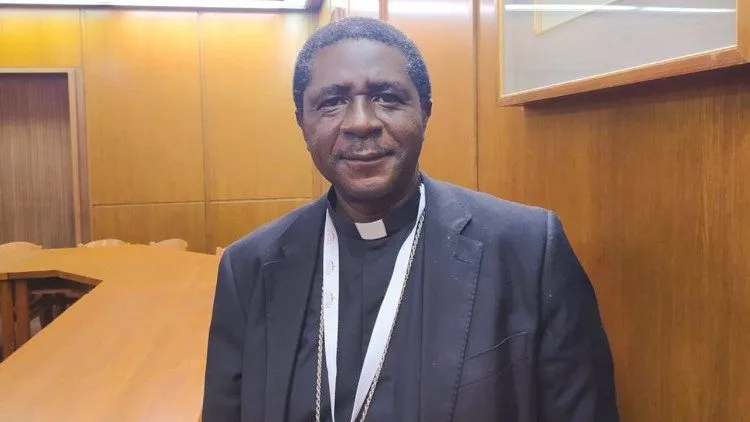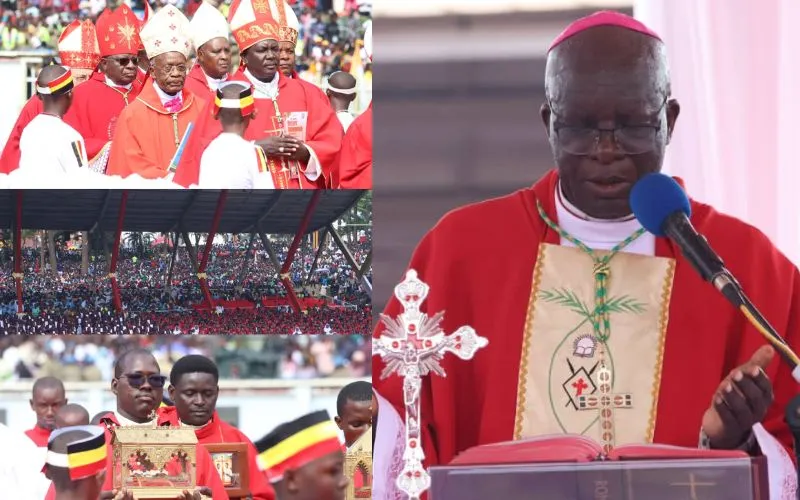He continued, “We were having the Synod on Synodality within the period of escalation of violence in the Middle East, the war in Ukraine, conflicts in Africa and other regions of the world. Throughout the synod, the Holy Father prayed with the synod participants for peace and called on all mankind to be pro-peace.”
“We cannot talk about synodality in isolation from peace, justice and love. The call of Christ for us to love one another should be our guiding principle,” the Catholic Archbishop who started his Episcopal Ministry in Cameroon’s Mamfe Diocese as Coadjutor Bishop in August 2013 said.
He added, “Like the Holy Father said during the closing Mass, the three principles to guide us, drawing from the gospel of the day, are Amore, Servire, Adorare - to love, to serve and to adore.”
“I think the principal point this synod is bringing to the life of the Church is synodality, the new way of being Church, or as we say in the Ecclesiastical Province of Bamenda, the original way of being Church, because this was practiced already in the early Church,” the Archbishop said.
He continued, “The whole idea of not leaving anyone behind is important and that we don't see or run the Church as a society of puritans but as a bandwagon of Saints and sinners moving together towards the Kingdom of God.”
Reflecting on Africa’s participation at the synod, Archbishop Nkea said delegates from the continent “made some remarkable contributions.”
He especially highlighted what he described as “the practical idea” of the Small Christian Communities (SCCs) and “the bottom-up approach” to decision making processes in the Church in Africa, saying, “In those SCCs, the Church is family and we refer to them as the Church in the neighborhood, everybody knows everybody and they work together.”
Commenting on the issues of LGBTQ which was reportedly downplayed by synod participants, Archbishop Nkea said, “Africa focused on the teaching of the Church on the human person and on sexuality - male and female he created them. The whole idea of homosexuality is foreign to African culture and although we think that people with such orientation need pastoral accompaniment, we also agree that it is not the natural way created by God.”
The participants also explored the issue of polygamy which the Archbishop said is prevalent in some African cultures. He said, “Although we completely agree with the teaching of the Church of one man one woman, the synod agreed that we should do profound theological and cultural studies on how to spiritually assist those who find themselves in this situation.”
He added, “I left the synod feeling very satisfied and even more committed to fostering synodality as the new way of being church. I left there invigorated to be fully involved in communion, participation and Mission as the new identity of the Church.”








